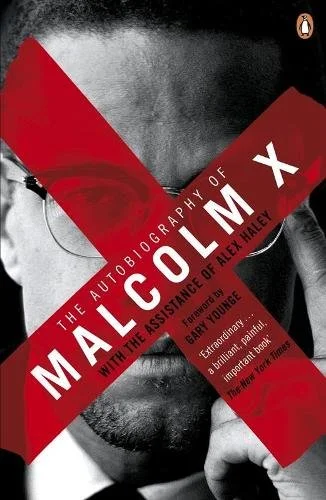The Autobiography of Malcolm X
There are some autobiographies I believe everyone should read, and The Autobiography of Malcolm X firmly belongs in that category. It’s difficult to imagine a world where all races live in perfect harmony, making it essential to understand and learn more about the key figures in the struggle for racial equality. For me, Malcolm X remains an essential figure in the history of the struggle against racism.
I don’t recall much time being allocated to Malcolm X in the curriculum when I was at school. I’m aware that Black History Month is now part of the curriculum, but I still suspect his story isn’t explored in the depth it deserves although I may be wrong. Too often, I notice that he’s portrayed through a narrow lens being cast as the “radical” counterpart to Martin Luther King Jr.’s more passive image. In truth, both figures are far more nuanced than those labels suggest, and both are misunderstood by those who haven’t taken the time to study their lives and ideas in full.
For those unfamiliar, the Malcolm X film offers a powerful introduction, but the book goes deeper as is typically the case with text over film. It traces his journey from a troubled youth to one of the most influential voices in modern history. What’s particularly important about Malcolm’s story is tracing the evolution of his worldview and how his experiences, education, and encounters continually reshaped his understanding of identity, faith, and justice.
As with many figures taken before their time, there’s a haunting self-awareness in Malcolm’s later reflections, including his recognition of the danger his beliefs placed him in. The book closes near the end of his life, though there are other biographies that continue the account of his assassination and the events that followed.
For me, Malcolm X stands not just as a key figure in Black history but as a pivotal figure in world history. Someone whose courage, conviction, and intellectual growth offer enduring lessons for us all.
Who’s it for?
Anyone interested in autobiographies, social history, or the lives of transformative figures will likely enjoy this. Those with a particular interest in race relations, politics, or 1960s America will find it of particular interest however truthfully, this is a book everyone should experience at least once.

